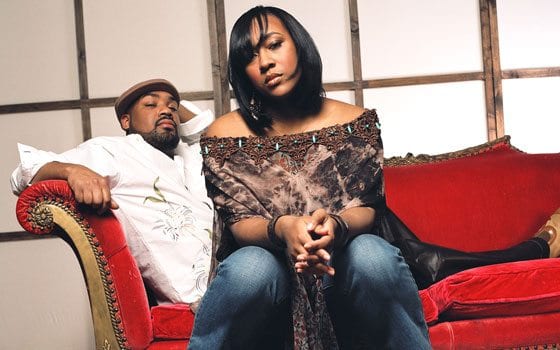
Duo Kindred the Family Soul will perform at event
Kinky and coily, or silky and bone-straight? That’s the topic of debate this Saturday at Facing Love VI, a talk show-style symposium that invites Boston’s black community to talk about issues that impact the relationship between men and women.
The symposium features panelists Darrius Peace, natural hair stylist and author of My Hair Aint Nappy, Jessyca Abena Marshall, LMSW and founder of Brooklyn-based Naturally Beautiful Hair Care and Nancy V. Brown Campbell, master hair stylist and owner of Newbury Street salon NV My Hair. The panelists will share their personal hair journeys, explore the ways relaxed and natural hair reflect trends in black style and discuss how black beauty standards affect women and men physically, mentally and emotionally.
How did Facing Love’s founders decide to delve into the world of perms, wigs, weaves, braids, afros and dreads? It started with a Facebook post.
After hosting the first Facing Love symposium in 2008 and holding dialogues nearly every year since, the gentlemen, led by Salih Rowe, 2nd Vice President of the Boston Society of Vulcans — a non-profit organization comprised of Black and Latino firefighters — decided to harness the power of social media to keep the conversation going between events.
They started a Facebook group page where they posted links to interesting and relevant articles, news and views. When a Facing Love co-founder posted a link to an article about possible connections between hair relaxers and fibroid tumors, Rowe knew they’d found the theme for their next symposium.
“My partner … posted a link and asked the question: ‘Is it worth it?’ Is it worth it to perm your hair and open yourself up to the possibility of fibroid tumors gestating in your body for the look of the European?” he said.
“The post went bananas — there were more than 300 comments, and [the debate] went for a couple of days,” Rowe recalled.
Intrigued by the multi-layered subject he describes as “the onion that is Black hair,” Rowe and his fellow organizers dubbed this year’s symposium “Black Hair: The Natural Debate” with the intent of exploring how black beauty and style can affect how black people think about and interact with each other.
But when it comes to talking about black hair, Rowe recognizes that many women will wonder what love — or black men — have to do with it.
“There are sisters asking me ‘Why do you care?’ They view it as us trying to get into black women’s business in order to control or influence negatively. And that’s why we’re doing Facing Love at all, to change that perception that black women have of many black men that our interaction with [them] is nefarious by nature,” Rowe said.
“We want to say, ‘No sisters, we’re involved in this because we care about you; whatever affects you affects us. We’re your brothers and we love y’all and we want what’s best for y’all, and this is how we’re going about doing it,” he added. “We knew that the relationship between black men and black women was never going to get better until we dropped the pretenses and talked as if neither one of us was there.”
When Rowe came up with the concept for Facing Love back in 2008, he knew that the event would have to feature topics provocative enough to spark people’s interest and a dialogue deep enough to get folks fired up.
“With black folks, you have to agitate them a little bit to get them to be involved in anything,” Rowe said. “We want peace and we’re very apathetic people at times, so we have to needle you in some areas to get you to want to come.”
Engaging the audience in challenging yet meaningful conversation has been the key to making Facing Love different than the typical community forum.
“We see it all the time — organizations have these think tanks and conferences where you go, they introduce a keynote speaker, everyone claps and it’s dry as hell,” said Rowe. “Facing Love is different in that we want to engage the attendees, because their input is just as valuable as those people that we want to put up on pedestals and onstage because they have positions and degrees. It adds another element of excitement and energy that I just haven’t seen before.”
Adding to the excitement of this year’s event is a performance by husband and wife RandB duo Kindred the Family Soul, who Rowe said represent the resiliency, respect and romance of a black man and woman in love. Their latest album “Love Has No Recession” features upbeat, grown-folk grooves like “You Got Love” featuring rapper Snoop Dogg, sensual bedroom ballads like “Magic Happen” and thoughtful political sendups like “Take A Look Around.”
Rowe said the couple’s music inspired him to keep looking for the love of his life, despite the sometimes difficult interactions he has with black women, and to continue to focus on rebuilding “the basic unit of black civilization: the black family.”
“Their music made me start to believe that it was possible that I could find someone that I could share my experiences and my life with,” he said. “I was really about to accept the fact that I was just going to be single for the rest of my life.”
Facing Love VI, featuring Kindred the Family Soul, takes place Saturday, March 9 from 1 to 7 p.m. at Hibernian Hall, 184 Dudley St, Roxbury. Tickets are $40; visit FacingLove.com for more information.






